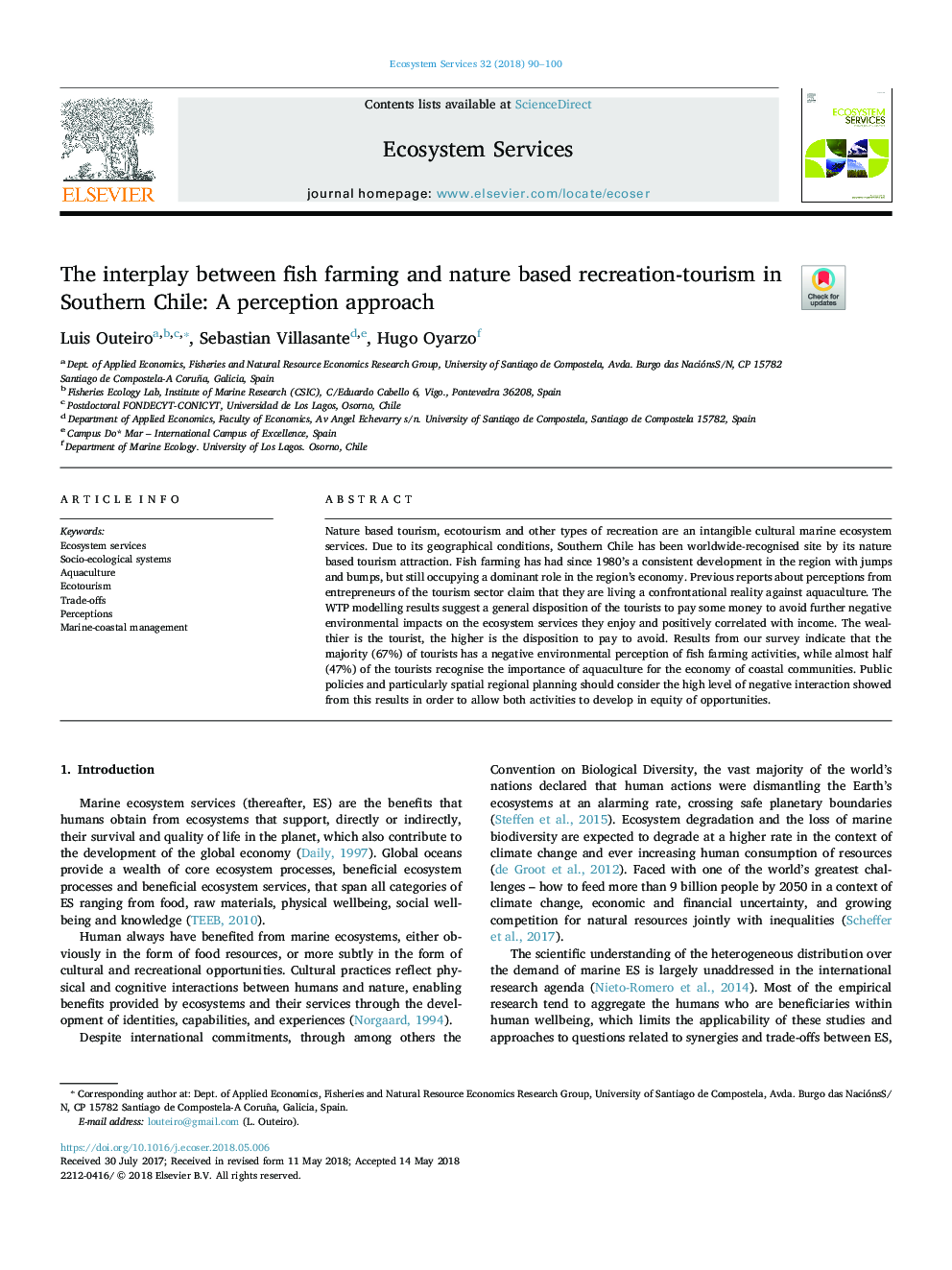| Article ID | Journal | Published Year | Pages | File Type |
|---|---|---|---|---|
| 6556243 | Ecosystem Services | 2018 | 11 Pages |
Abstract
Nature based tourism, ecotourism and other types of recreation are an intangible cultural marine ecosystem services. Due to its geographical conditions, Southern Chile has been worldwide-recognised site by its nature based tourism attraction. Fish farming has had since 1980's a consistent development in the region with jumps and bumps, but still occupying a dominant role in the region's economy. Previous reports about perceptions from entrepreneurs of the tourism sector claim that they are living a confrontational reality against aquaculture. The WTP modelling results suggest a general disposition of the tourists to pay some money to avoid further negative environmental impacts on the ecosystem services they enjoy and positively correlated with income. The wealthier is the tourist, the higher is the disposition to pay to avoid. Results from our survey indicate that the majority (67%) of tourists has a negative environmental perception of fish farming activities, while almost half (47%) of the tourists recognise the importance of aquaculture for the economy of coastal communities. Public policies and particularly spatial regional planning should consider the high level of negative interaction showed from this results in order to allow both activities to develop in equity of opportunities.
Related Topics
Life Sciences
Agricultural and Biological Sciences
Agricultural and Biological Sciences (General)
Authors
Luis Outeiro, Sebastian Villasante, Hugo Oyarzo,
